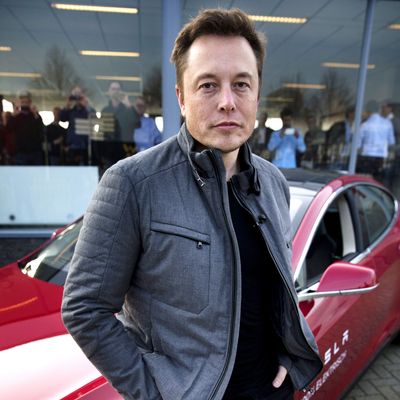
In a story for this week’s magazine, I tried to explain the brewing fight among Silicon Valley tech leaders over how to engage the national political apparatus: whether they should stay arm’s length and hire paid lobbyists to advance their corporate self-interests, à la Wall Street or Big Oil; whether they should engage in a genuine hearts-and-minds campaign to win over the general public and spread their bounty to the rest of the country; or whether they should ditch politics altogether and decamp to their libertarian seasteads.
Bloomberg has a fascinating story today about how, over the course of three years, tech billionaire Elon Musk has chosen Option One by hiring lobbyists to pit local officials in Texas, Florida, Georgia, and Puerto Rico against each other over which one would get to host a new commercial launchpad for his SpaceX rockets.
No official spot for the launchpad has been chosen yet. But Bloomberg reports that after a lengthy back-and-forth, officials in Brownsville, Texas, have offered Musk what he wanted – “$20 million of financial incentives, laws changed to close a public beach during launches and legal protection from noise complaints” – in exchange for what Brownsville wanted: a giant launchpad that would attract roughly 600 jobs to an economically depressed region.
Musk was always going to get his way. The promise of hundreds of new, high-tech jobs is catnip for local lawmakers, and it was a question of how big SpaceX’s incentives were going to be, not whether the company would get them. But Musk played hardball anyway:
Three years of discussions among Texas officials and SpaceX representatives culminated with the incentive offers, according to interviews. SpaceX hired lobbyists and flew a key lawmaker to its offices. Musk gave about $12,000 in campaign contributions …
During the meeting … Musk described his dream to take people to Mars, [Brownsville business official Gilberto Salinas] said. He also said Texas needed to compete with other states.
“They told us, ‘You’re one of quite a few locations we’re looking at,’” Salinas said.
This negotiation is straight out of the special-interest playbook: Give my company a tax break and we’ll create jobs in your city, or don’t and we’ll give the jobs to a more accommodating place. And it seems to have worked in this instance. But Musk’s tactics are at odds with what other Silicon Valley leaders say they want to create in the long-term: a political atmosphere in which tech leaders are admired rather than feared. Here’s what influential tech investor and Musk friend Shervin Pishevar told me:
“There shouldn’t be any obstacle to Elon being able to change our world. It would be like going back to the Revolutionary War and saying, ‘You guys can’t fight the British because you’re not going to have enough capital to buy guns.’ To me, I literally don’t see a difference. This is a different kind of revolution, and my Thomas Jefferson is Elon Musk.”
The difference between Jefferson and Musk, of course, is that Jefferson didn’t need lobbyists. It’s telling to look at the difference between how Brownsville officials like Salinas responded to Musk’s proposal for a SpaceX launchpad – by bending over backward to make it happen – with how Brownsville residents reacted: by making fun of it.
At one meeting with residents to discuss the project, Salinas was mocked as Buzz Lightyear, after the character in Toy Story who thinks he’s a real astronaut.
This disjoint is the political problem for Silicon Valley, in a nutshell. Lawmakers already capitulate to tech companies when jobs are on the line. But the general public is skeptical of the Valley’s schemes at best, and scornful at worst. Strong-arm tactics may work for one-off projects, but in order to implement the broader tech agenda – major reforms to transportation, education, health care, and other heavily regulated sectors that touch millions of lives – tech companies will need to convince normal people that they want companies like SpaceX building stuff in their backyards, and that the dreamers of Silicon Valley aren’t just snake-oil profiteers.
There’s no denying that SpaceX won in Brownsville, and that the launchpad – should it materialize – may end up being beneficial to the city as promised. Who knows? Brownsville residents may end up loving it. But the real victory for Silicon Valley will be when people like Musk don’t need to make threats to get what they want.





























